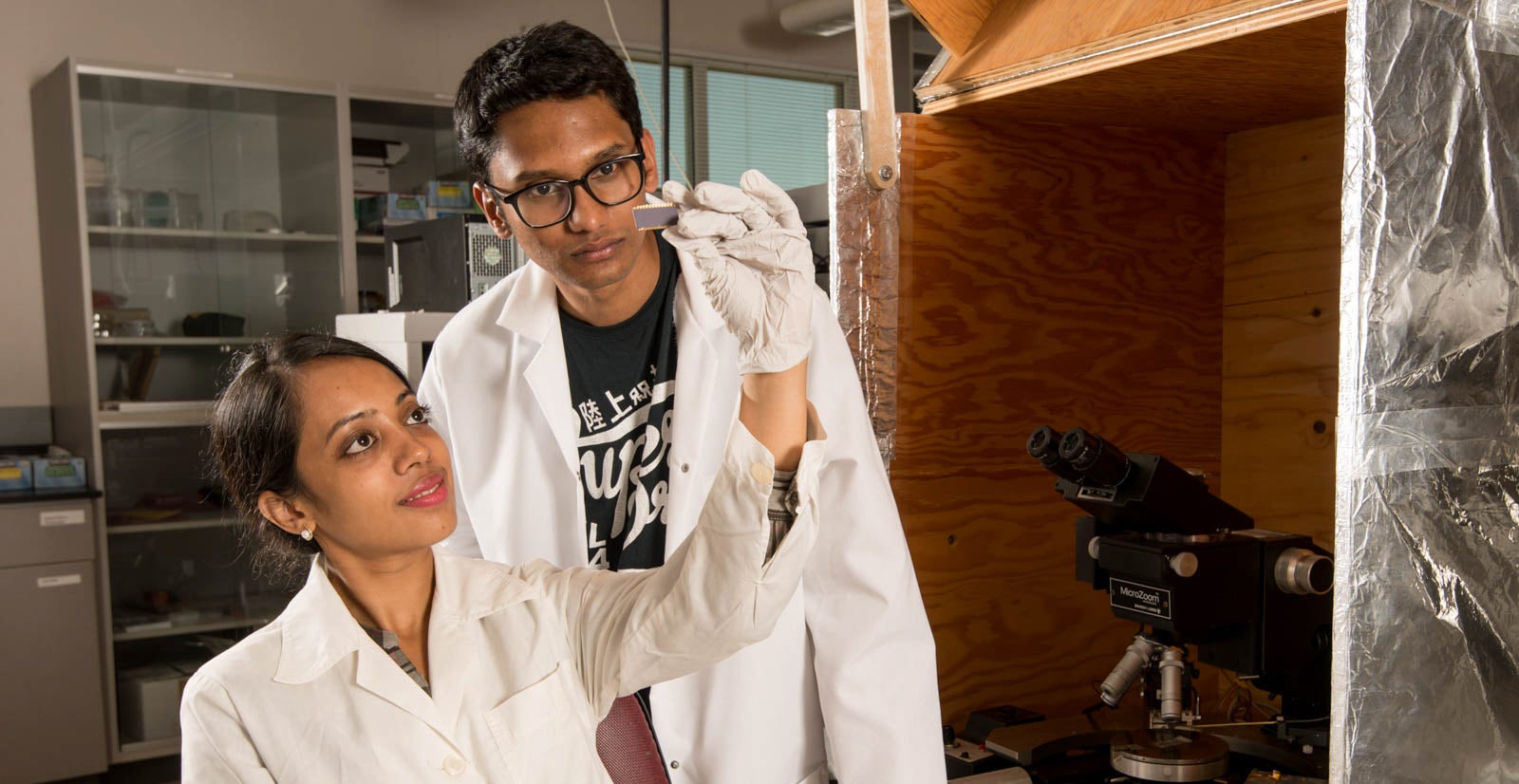
Boise State is successfully implementing education on semiconductors across various classes! The MER Institute, faculty, and industry professionals have been working hard to create content on semiconductors that can be introduced into a variety of courses. This month, a chemistry and a physics course reached out to share the success they had with the new content.
Professor Brian McClain, Associate Clinical Professor in the Department of Chemistry, said that he gave the first portion of the lecture on semiconductors in his Chemistry 111 class.
McClain stated that “the response of the class was overwhelmingly positive,” explaining that his students were engaged, insightful, and full of questions about the material and internship/career opportunities that are available within the field.
In a Physics 309L Semiconductor Fluorescence Lab given by Peter Webb and designed by Professor Dmitri Tenne, students worked with semiconductor bulk samples.
“In my opinion, the lab was a complete success,” Webb said.
He talked about the work that will continue to go into student experiences such as these, and how this was an effective start to the project of semiconductor education throughout campus.
The ability to provide faculty with the resources to implement this material comes from the Semiconductor for All grant, a $10 million project that focuses on semiconductor education in K-12 and higher education environments. More than 20 courses have been updated on campus, 53 weeks of faculty time has been funded, and more that 500 students are being impacted by this work. It’s one more example of how education on semiconductors is not only needed in Idaho but is successfully being taught across all disciplines.